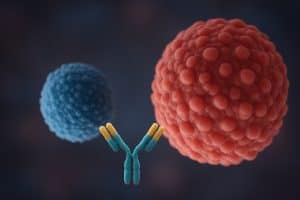DH admits cancer awareness campaigns failed
pharmafile | June 28, 2012 | News story | Sales and Marketing | Cancer, Department of Health, GPs, government
The government’s £9 million cancer awareness campaigns were built upon failed pilots, according to newly released data.
The national awareness campaign focused on encouraging earlier diagnosis of breast, lung and bowel cancer and was launched by the Department of Health at the start of the year.
But before running these national campaigns, the government tested their effectiveness by running pilots, but these failed to increase cancer detection.
Data from local pilot projects in 76 primary care trusts in 2010/11 showed a non-significant 9% rise in two-week wait referrals for lung cancer, compared with a 7% rise in referrals over the same period seen in 73 control areas, where the publicity campaign was not run.
Similar figures were found for the bowel cancer campaign where there was a non-significant 16% rise in areas with local awareness campaigns, but a 13% in control areas.
The awareness campaigns also had no significant effect on the number of cancers detected.
There was a 6% rise in bowel cancer and a 4% rise in lung cancers detected in areas with the awareness campaign, but these were not statistically significant increases compared with control areas.
Figures for the breast cancer awareness campaigns were not calculated.
The DH concluded that these pilot schemes failed to show effectiveness in increasing cancer detection rates, but the government still went ahead with its national campaign, at a cost of around £9 million.
The DH’s report concluded: “The data appear to show no significant impact on the number of cancers diagnosed via the two-week wait or the percentage conversions.
“This suggests that some of the additional referrals observed during periods when projects were live subsequently led to a cancer diagnosis, but that others did not.”
Comment
The results of how the national campaigns fared have bot yet been released, but many doctors and GPs have argued that the only thing it does increase is the ‘worried well’, who bombard their offices with similar symptoms to what they have seen, but do not have any serious illness.
These pilots should be of interest to pharma, which spends much time and money on disease awareness campaigns.
These are of course for marketing reasons, but even with the might of a government budget and its reach, it still failed to make an impact, which should raise eyebrows amongst pharma marketing managers.
Ben Adams
Related Content

Central nervous system cancer metastases – the evolution of diagnostics and treatment
The current forms of immunotherapy, how T cell therapy works and what the future holds

BioMed X and Servier launch Europe’s first XSeed Labs to advance AI-powered antibody design
BioMed X and Servier have announced the launch of Europe’s first XSeed Labs research project, …

T-cell therapy – the evolution of cancer treatments
The current forms of immunotherapy, how T cell therapy works and what the future holds






